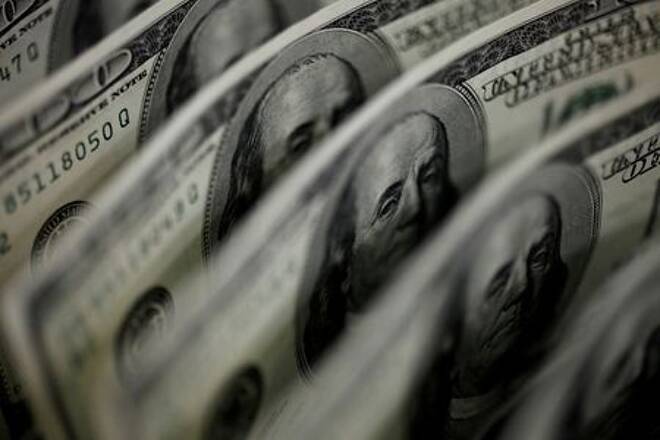Advertisement
Advertisement
China Raises $4 Billion in U.S. Dollar Bond After Attracting Strong Investor Demand
By:
HONG KONG (Reuters) -China has raised $4 billion through a U.S. dollar sovereign bond issue, a term sheet showed, with the offer attracting robust demand from offshore investors despite an ongoing regulatory crackdown across industries and problems in the property market.
Investor bids for the four tranche deal reached $23.2 billion, nearly six times the amount raised, official statistics published by advisers showed on Wednesday.
The sale comes at a tricky time for China: its economy is slowing, while investors are worried about a regulatory crackdown and potential contagion from China Evergrande Group’s debt problems.
The strong appetite came after finance ministry officials told investors on a call on Monday they were confident cash-strapped developer Evergrande posed no systemic risk, three people with knowledge of the matter said. The sources could not be named as the information had not been made public.
The Finance Ministry did not immediately respond to Reuters’ request for a comment.
A People’s Bank of China official also said on Friday that the spillover effect of Evergrande’s debt problems is controllable and individual financial institutions’ risk exposures are not big.
Evergrande shares remain in a trading halt on the Hong Kong Stock Exchange after it missed a number of offshore bond interest repayments in the past few weeks. It is grappling with more than $305 billion worth of liabilities.
The pricing for China’s dollar-denominated sovereign bond was set at 6 basis points (bps) above U.S. Treasuries for the three-year tranche, 12 bps over for the five-year, 23 bps higher for the 10-year and 53 bps above for the 30-year tranche.
Final pricing for the deal was significantly lower than first flagged.
Initial pricing guidance was given to investors at 35 bps over Treasuries for the three-year tranche, 45 bps on the five-year tranche, 55 bps on the 10-year tranche and 85 bps on the 30-year tranche.
The spreads on each of the tranches were the lowest ever for a sovereign bond issue from China, the three sources with direct knowledge of the matter said.
The three- and 10-year tranches each raised $1 billion, the 5-year raised $1.5 billion and the 30-year $500 million, the term sheet showed.
Asian banks were strong buyers of the shorter dated bonds because of their capital requirements, while U.S. investors were more active in purchasing the longer dated tranches, statistics on the deal showed.
The bond offering comes as the world’s second-largest economy posted its slowest pace of growth in a year in the third quarter, hurt by power shortages, sporadic COVD-19 outbreaks and a weakening property sector.
Investors questioned the economic implications of the power cuts but were assured China’s fundamentals remained strong, the sources with direct knowledge said.
The finance ministry also flagged that China would likely carry out a euro denominated bond before the end of the year, copying the pattern of issuance it initiated in 2020, the sources said.
The ministry did not immediately respond to a request for comment.
For a look at all of today’s economic events, check out our economic calendar.
(Reporting by Scott Murdoch in Hong Kong; additional reporting Gabriel Crossley. Editing by Jacqueline Wong, Sam Holmes, Ana Nicolaci da Costa and Kim Coghill)
About the Author
Reuterscontributor
Reuters, the news and media division of Thomson Reuters, is the world’s largest international multimedia news provider reaching more than one billion people every day. Reuters provides trusted business, financial, national, and international news to professionals via Thomson Reuters desktops, the world's media organizations, and directly to consumers at Reuters.com and via Reuters TV. Learn more about Thomson Reuters products:
Advertisement
